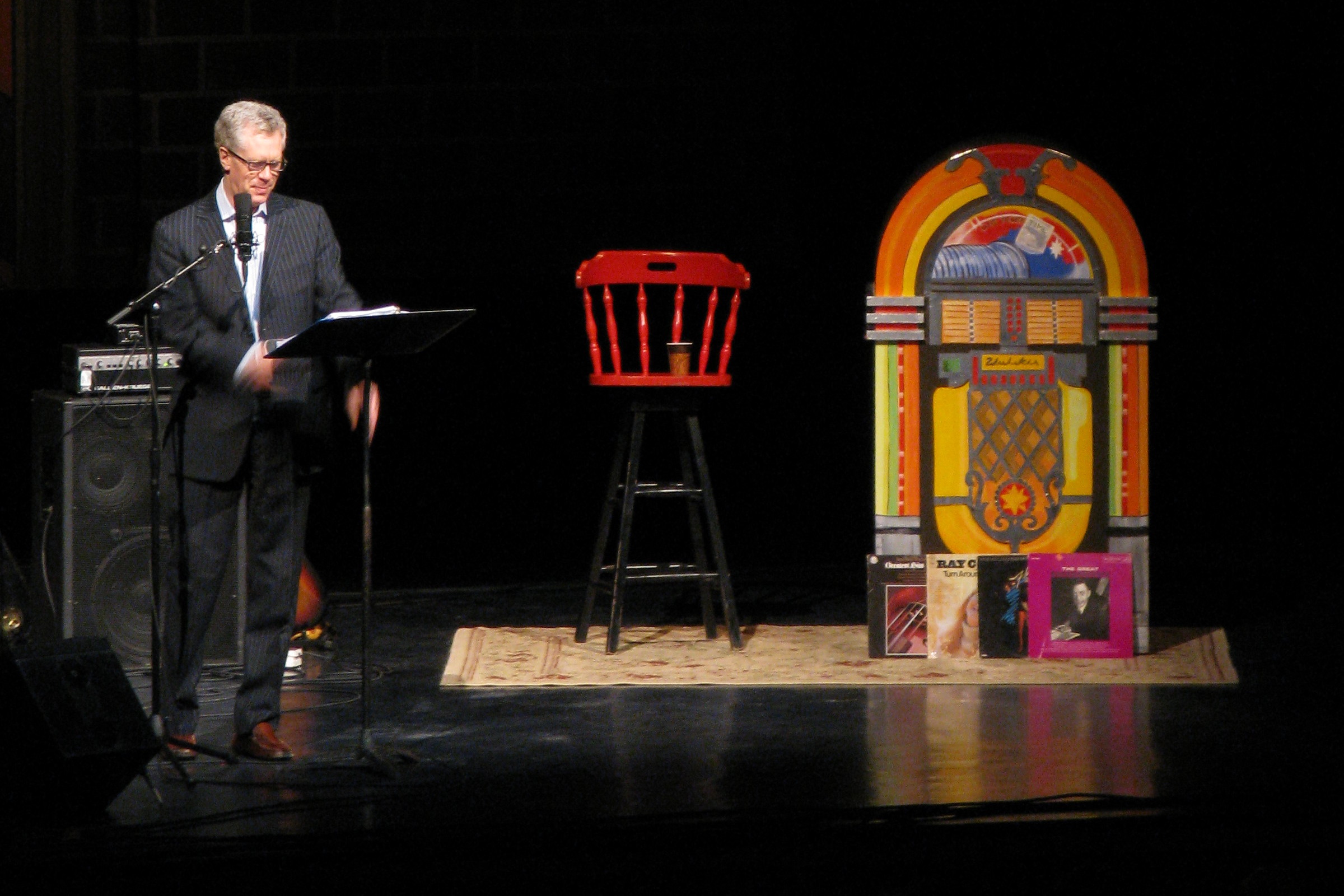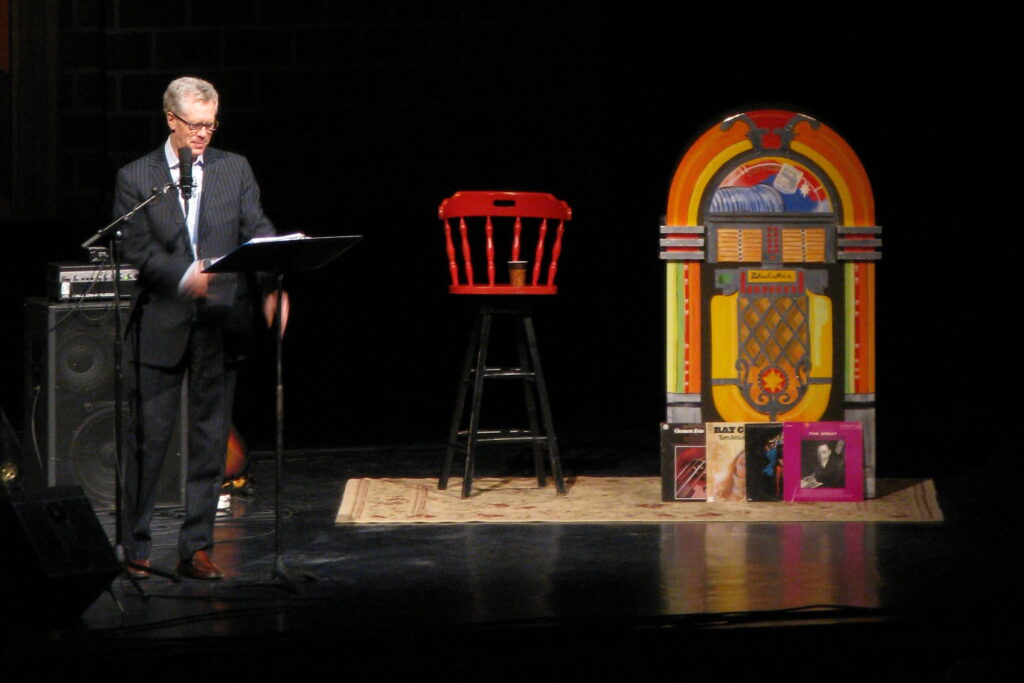
“We may not be big, but we’re small”
Picture this, let’s go back about 10 years. I would have been travelling somewhere with my parents. It could be camping, a day trip to Niagara Falls, or a much more lengthy journey to the East Coast provinces. I don’t remember much of the music that was played, and I’m not sure how my parents and brothers managed to stay sane during those 18+ hour drives. The few bits of entertainment I remember however are some short stories on CDs. Entertainment was limited in our old family vans and trucks. A few choice media bits were stories of Grimm fairy tales, the Sponge-Bob Square Pants movie, and our subject today:

The Vinyl Cafe
The easiest way to describe the Vinyl Cafe is a series of short stories made as a radio presentation. Sometimes presented on tour, in front of an unknown crowd of witnesses laughing and cheering along, and others assigned to the text in the pages of books. It originated in the form of a radio show, long since taken off the air since the passing of Stuart McLean in 2017. I know Vinyl Cafe from a collection of CDs called The Family Pack, often played on long road trips to keep us boys in the back seats placated. The stories themselves vary from 10 minutes to up to 30, ranging from subject to tranquillity tanks to bicycles to even the canals of Holland.
The Waterslide, my first experience with Vinyl Cafe and possibly the most slapstick episode produced
While the main family of the series, consisting of the husband Dave, wife Morley, and two kids Stephanie and Sam, are the usual suspects of these stories, Stuart was not afraid to branch out into the other people built into this universe. Sure, everybody in these stories is fictional, but since the stories are set in real-life Canada, it feels like these antics could be the transcriptions of some ridiculous circumstance befalling the family or their close friends. Each story feels outlandish but reminds me of stories told around dinner tables that sound fake to everyone except those who witnessed them.
What Sets it Apart?
I LOVE Stuart’s story-telling style. The exposition isn’t extensive, but enough to paint a picture of the setting, the personalities of the characters, and an easy-to-follow plot line. The humour is hearty and sincere, and the more serious bits hit me right in the heart (see Rock of Ages). He trusts that the listeners will suspend their disbelief without abusing that trust with excessive plots.
Rock Of Ages, an equal parts profound, sombre, and yet warm episode
In comparison, a similar Canadian book series/live performance Letters from Wingfield Farm by Dan Needles and performed by Rod Beattie creates a sharp contrast in presentation. Whereas Stuart kept voices simple and consistent with his own, Rod both vocally and physically morphs into each distinct character. Both are equally as captivating, but Stuart feels like a much more attainable performance for the average speaker. Slight variations from narration indicate character speech, and that is all he needed to transport us into the lives of the characters.
Why Should YOU, Dear Reader, Listen to it?
Storytelling, I feel, is an underappreciated skill and art. It takes finesse and a controlled articulation in order to captivate listeners by voice alone. That, and the story itself must be a world the listeners could invest themselves into.
We are so far removed from the radio shows of yesterday, but the art form still exists in an adapted state. Audiobooks and podcasts have largely taken the place of certain portions of radio, but at the very least we still have these recordings for future generations of listeners.
Vinyl Cafe is easy to find on whatever service you use for streaming, and I’d encourage you to give a few a listen.

Leave a Reply